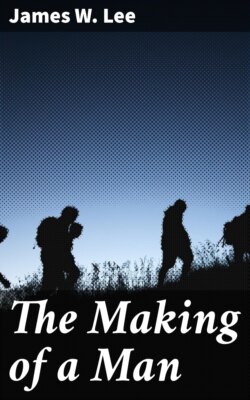Читать книгу The Making of a Man - James W. Lee - Страница 14
На сайте Литреса книга снята с продажи.
III.
ОглавлениеTable of Contents
The ultimate reasons, then, for the existence of social relations, brought about among human beings by exchange of products, is not the satisfaction of hunger, or the enrichment of individuals in material wealth, but the making of men. This being so, we are able to determine the law by which the production and distribution of commercial products are to be regulated. It must be a law that does not put the emphasis on the products, but upon the men who are to be elevated through their exchange. It must not be a law leaning to extreme individualism on the one side, or to extreme socialism on the other. It must have proper respect to the individual, and to the social organism to which he is indebted for whatever of power he possesses. That law has already been formulated for us. It is this: “Thou shalt love thy neighbor as thyself.” This is the coordination of self-love and good-will. As has been well said, this saves for us the strength of private enterprise, and individual initiative, the vigor of the self-regarding motives; yet enthrones by their side as co-equal and co-regent powers, the principle of benevolence, the obligation to promote the common weal. Self-support, self-help, self-reliance, are still cardinal virtues, but philanthropy is given co-ordinate authority with them in the commercial world. This is the law most favorable to the growth of men.
Under its benign reign, men can come to themselves. Through the operation of this law, there will be no curtailment of the volume or the extent of commerce; but the emphasis will be kept in the right place, and men will not be lost in the process of securing the elements of food and shelter. Commerce will be the means of mediating to men their higher nature. Surrounded by conditions engendered by the operation of a law like this, life will reach through relation higher and higher ranges of hope and insight. The elements of poems, symphonies, philosophies, temples, and pictures will flow in the blood.
The fierce competition we see in the commercial world to-day is the attempt to re-enact, in business life, the principle of natural selection, or “the survival of the fittest in the struggle for existence.” This is the law of the jungle, but not of the social realm. This is doubtless the law among trees, determining their number, variety, and structure; for one tree gains nothing from association with other trees. This law doubtless operates in the sea, among the fish, and in the sky among the birds, for fish and birds are what they are by birth and not by association. Mr. Spencer regards the operation of this law as beneficent. It kills off the unsuccessful members of society, it drives the weak ones to the wall. Those who survive in the struggle are the fittest. The Greeks, who put Socrates to death, were, according to this so-called beneficent principle, the fittest to survive. This law is regarded as beneficent as it operates among men to control their products, upon the supposition that man is an animal and a part and parcel of nature, as are the bears and the wolves. The things which elevate men and civilize them, however, do not come from nature, but are engendered through companionship and association. Hence, from the sense of obligation men are under to one another for the best and highest things of life, the law is to be deduced which is to regulate their commerce and to determine the character of their actions. This law is, “Thou shalt love thy neighbor as thyself.” Thus business looks to character. The discipline it insures is worth more than the money it brings. The highest product of trade is man himself. If in business such methods are practiced, if such aims are followed as destroy the man, however great the returns in money, it is a thousand fold worse than a failure. The man it was designed to make, it has destroyed.
